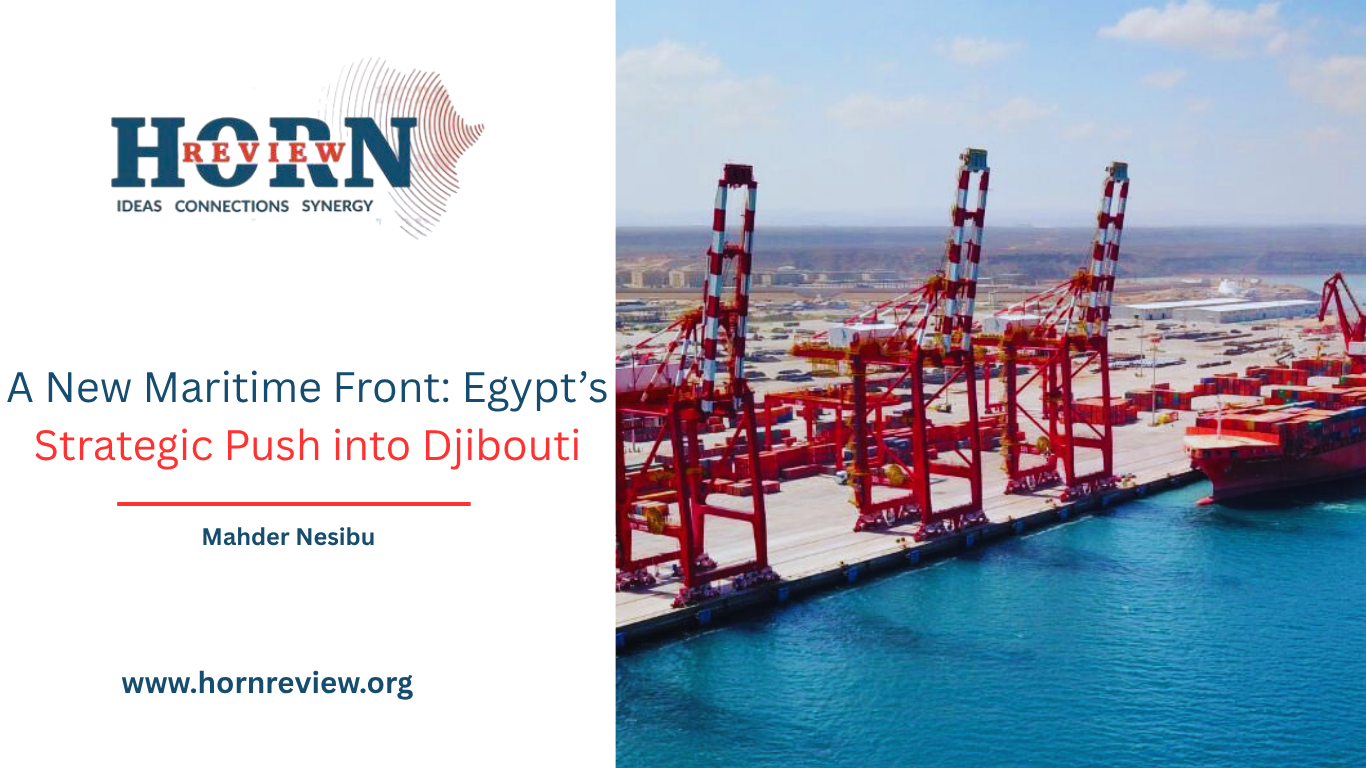
12
Nov
A New Maritime Front: Egypt’s Strategic Push into Djibouti
Egypt’s deepening engagement with Djibouti marks a decisive expansion of its geopolitical strategy in the Red Sea and the Horn of Africa. The recent meeting between Aboubaker Omar Hadi, President of Djibouti’s Ports and Free Zones Authority, and the Egyptian company ElSewedy Electric, led by Mohamed Fathy Moussa, assistant to Egypt’s Deputy Prime Minister and Minister of Industry and Maritime Transport, served as the visible prelude to a broader effort that extends far beyond commercial cooperation. The expected visit of Deputy Prime Minister Kamel El-Wazir is set to formalize an agreement that, while framed in economic and developmental terms, carries clear strategic intent. Cairo’s overtures toward Djibouti, when viewed in the wider regional context, reveal a deliberate attempt to project influence, constrain Ethiopia’s regional reach, and strengthen Egypt’s position as a maritime power capable of shaping the political and economic balance of the Horn.
The proposed projects under this bilateral arrangement present a calculated mix of economic investment and geopolitical design. They include the construction of a 20-megawatt solar park to power the Société de Gestion du Terminal à Conteneurs de Doraleh (SGTD); the establishment of a ten-hectare logistics zone to facilitate Egyptian exports under CIF Djibouti terms; and the development of a major new container terminal with a 1,450-meter quay and capacity for five million TEUs. The initiatives appear aligned with Djibouti’s ambition to become a leading logistics hub, yet their strategic implications are unmistakable. By embedding itself in the infrastructure that handles nearly all of Ethiopia’s external trade, Egypt is positioning itself to acquire an indirect but significant form of leverage over Addis Ababa. The use of economic cooperation as a means of strategic expansion reflects Cairo’s broader method of influence across the Red Sea corridor, one that is often presented as developmental partnership.
This approach reflects a deeper strategic logic that has defined Egyptian foreign policy toward Ethiopia since the commencement of the Grand Ethiopian Renaissance Dam’s construction. The GERD crystallized Egypt’s long-standing anxieties over the potential of downstream states to challenge its monopoly of Nile resources and triggered a multidimensional response that extends beyond water diplomacy. Cairo’s actions in the Horn increasingly reveal a containment strategy aimed at surrounding Ethiopia through relationships with its coastal neighbours and limiting its capacity to regain maritime access. Egypt’s approach is one of gradual encirclement through economic involvement and security cooperation. Its partnerships with Eritrea, Somalia, and now Djibouti represent successive stages in this policy, collectively forming a network designed to reduce Ethiopia’s room for regional manoeuvre.
Eritrea has long been central to this effort. Egypt’s sustained outreach to Asmara and its cultivated rapport with President Isaias Afwerki have deepened over the years, reinforced by security coordination and political alignment. The relationship grants Cairo a platform along Ethiopia’s northern border and an avenue for influence in its domestic affairs. Egyptian media and official discourse frequently depict Ethiopia as a destabilizing actor, thereby framing Cairo’s regional activism as necessary and defensive. In Somalia, Egypt has exploited tensions surrounding the Ethiopia–Somaliland memorandum of understanding, presenting itself as Mogadishu’s ally in defence of national sovereignty. Plans for Egyptian troop deployments in Somalia indicate a willingness to translate political alignment into physical presence, signalling a calculated extension of influence under the cover of cooperative security. The same method now appears to be applied in Djibouti, framed as economic collaboration but intended to expand Egyptian reach in a region where strategic advantage is increasingly tied to control of infrastructure.
Djibouti’s position within this framework is critical. Serving as Ethiopia’s primary maritime outlet and handling more than ninety-five percent of its trade, Djibouti functions as the core of Ethiopia’s external economic system. Egypt’s entry into Djibouti’s port operations is therefore not a neutral act of commercial engagement. It introduces a potential mechanism through which Cairo could exert influence over Ethiopian trade in moments of political friction. The integration of energy, logistics, and shipping projects into a single arrangement gives Egypt a durable and discreet source of leverage. While publicly justified as mutual development, the long-term outcome would reinforce Egyptian control and deepen Ethiopian dependence.
For Djibouti, this partnership offers both benefits and risks. Egypt’s investment brings new capital, technology, and diversification for its vision to become a major logistics hub. Yet it also risks aligning Djibouti with Egypt’s regional objectives, particularly its rivalry with Ethiopia. The small state’s strategic neutrality, already tested by the overlapping presence of global powers and Gulf actors, may come under further strain as Egypt adds its influence. Djibouti has managed to balance multiple relationships to sustain growth and stability, but the increasing density of foreign stakes within its territory could erode its autonomy in making independent policy choices. If Egypt’s aggressive diplomacy is left unchecked, Djibouti’s role as a neutral logistics hub could be compromised by external pressure and competing agendas.
Egypt’s engagement in Djibouti also reflects its wider Red Sea vision. Cairo views the Red Sea as part of its national security domain, stretching from the Suez Canal to the Bab el-Mandeb Strait. Control of maritime infrastructure along this route strengthens Egypt’s claim as a key power in global shipping and trade. By aligning its investments with narratives of green development and regional integration, Egypt presents its policy as constructive while reinforcing its political weight. The strategy links economic cooperation with security interests and allows Egypt to consolidate its presence in a corridor where several global and regional powers already compete for influence.
For Ethiopia, the consequences are substantial. Dependence on Djibouti has long been recognized as a structural weakness that Egypt now appears ready to exploit. Addis Ababa’s efforts to diversify access through talks with its neighbours have faced consistent resistance, much of it reinforced by Egyptian diplomacy. The recent partnership between Egypt and Djibouti further limits Ethiopia’s options and increases its vulnerability. The situation exposes the shortcomings of Ethiopia’s fragmented maritime policy, which has failed to anticipate the scale of regional competition unfolding around the Red Sea. As Egypt integrates its maritime policy with its Nile strategy, Ethiopia faces a two-front challenge requiring coordinated political and economic planning.
Egypt’s conduct demonstrates a pattern of calculated opportunism framed in cooperative language. Its regional ventures are rarely limited to trade; they serve to expand political influence and strategic control. The projects in Djibouti fit this pattern, using economic engagement to establish a long-term presence within critical infrastructure. The implications reach beyond Ethiopia, touching the entire Horn of Africa, where smaller states increasingly face the risk of being drawn into external rivalries. The balance between attracting investment and maintaining political independence is becoming harder to sustain.
For Ethiopia, the expansion of Egyptian involvement across its maritime periphery demands a comprehensive response that links infrastructure policy, diplomacy, and security planning. Without such coordination, Egypt’s partnerships will continue to strengthen its influence at Ethiopia’s expense, narrowing the country’s strategic choices and deepening its external dependence.
By Mahder Nesibu, Researcher, Horn Review

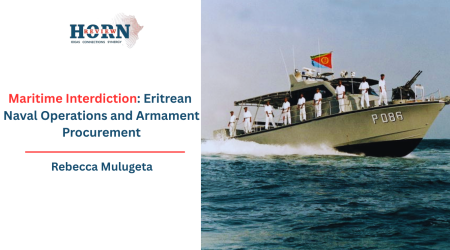

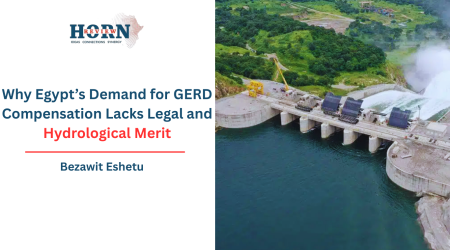
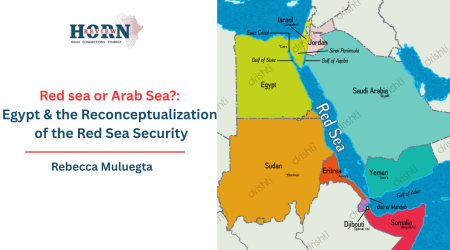
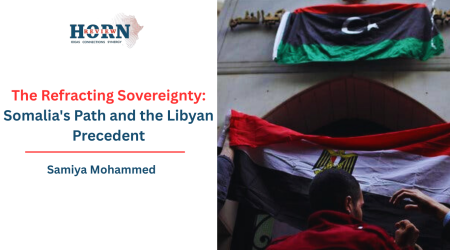



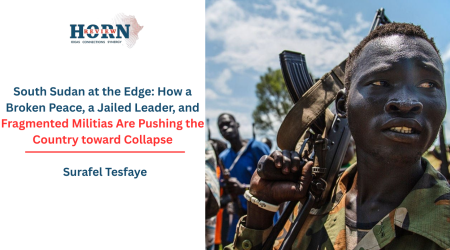

Comment (1)
May allah increase your knowledge . I feel very enlightened by reading your articles .Especially the language fluency and its flow proves remarkable. Greetings from an ethiopian brother studying international relations in turkiye ,doing MA in political science and IR .